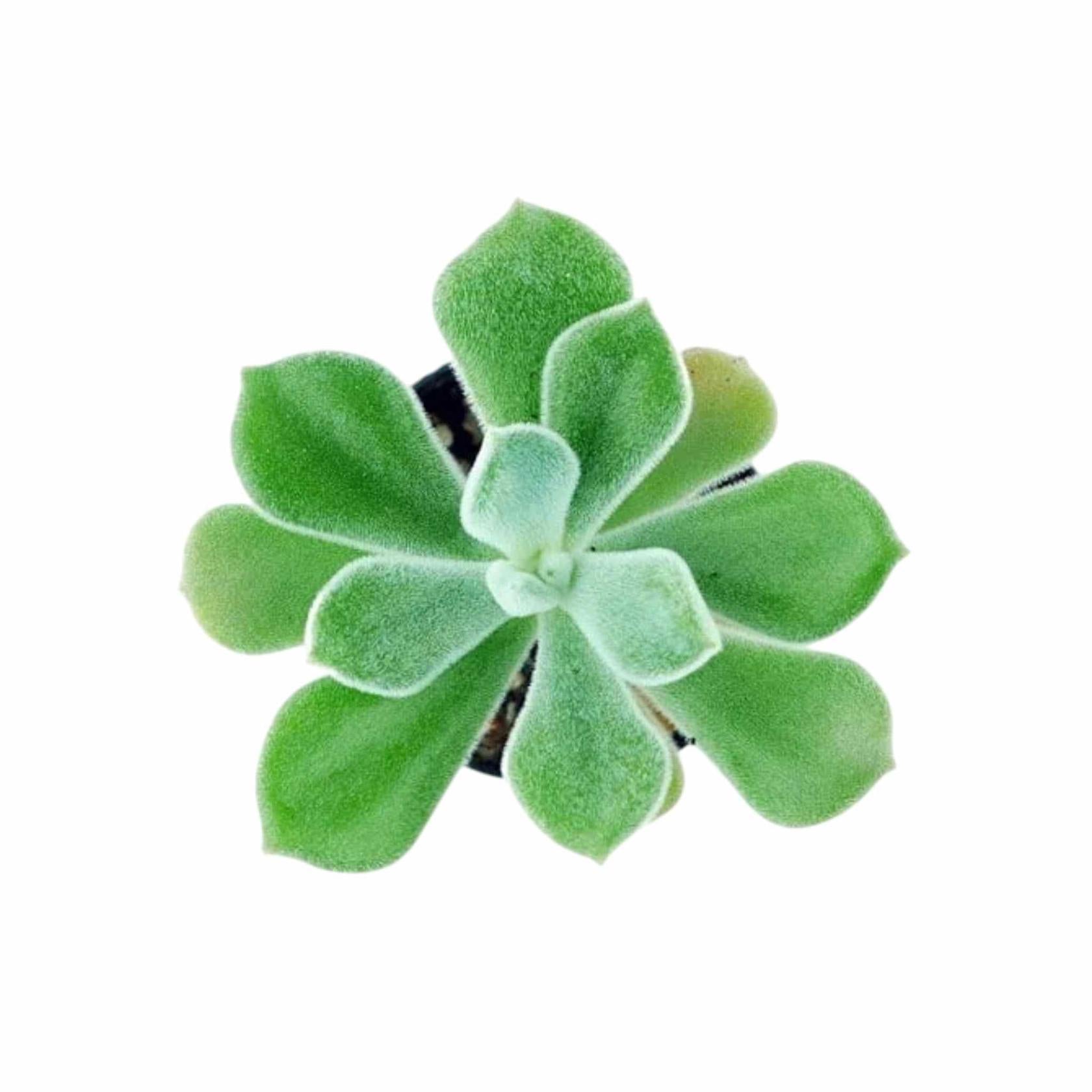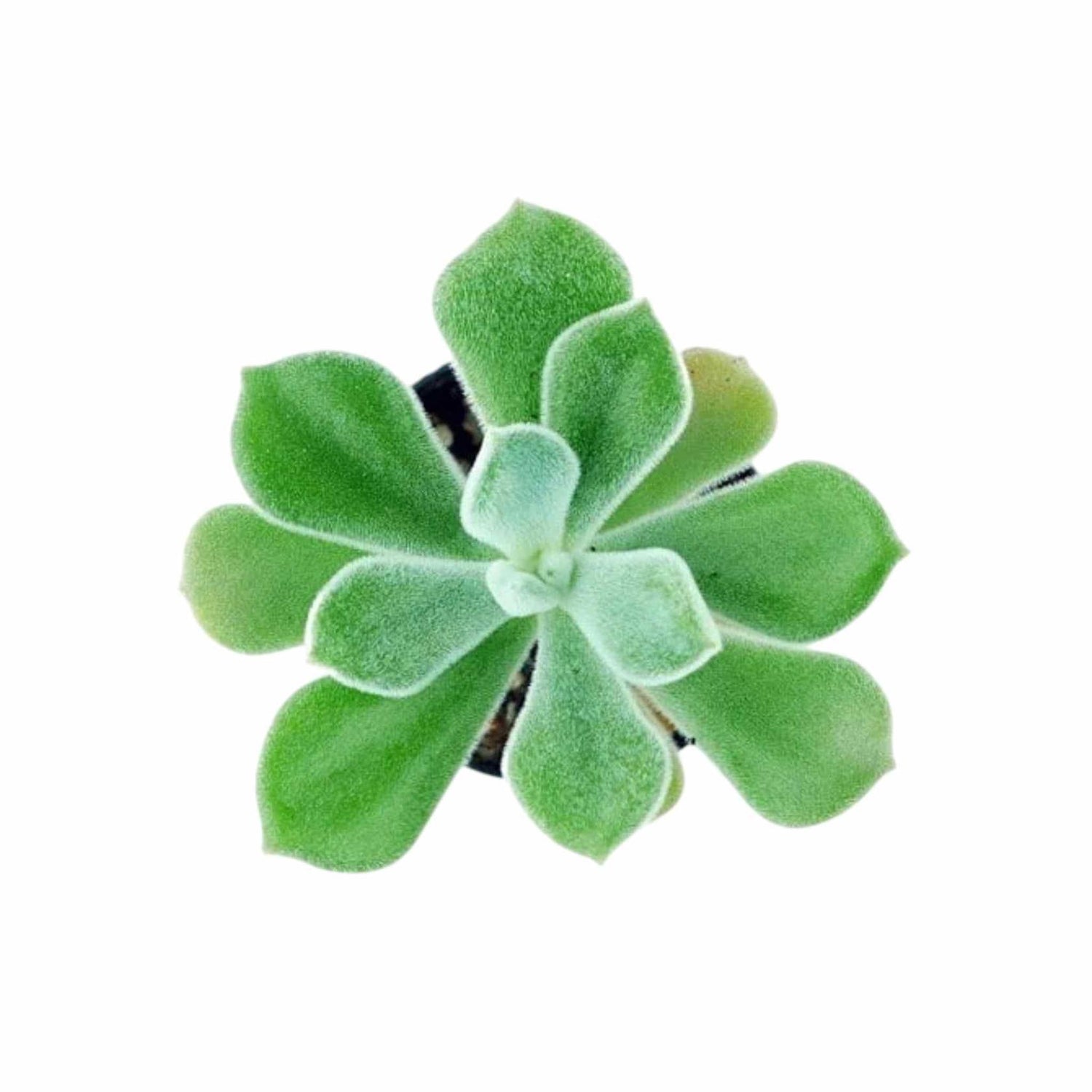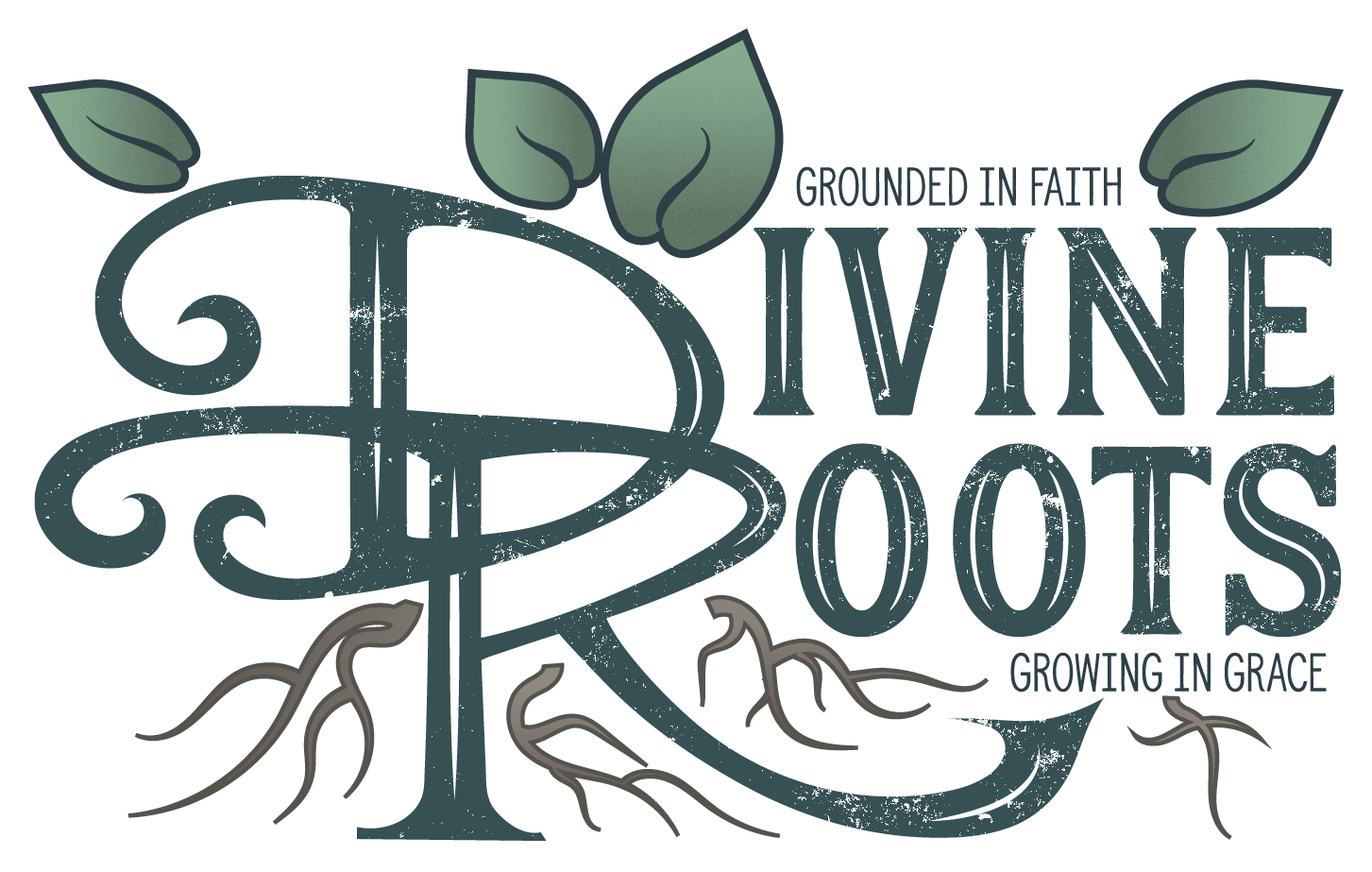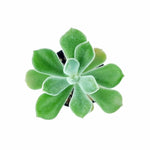
Echeveria Pulvinata Frosty
$12.09
Unit price perEstimated delivery between 31 October and 02 November.
At Divine Root, we are committed to delivering healthy, high-quality indoor plants to our customers. While we do not accept returns due to the perishable nature of live plants, we offer a 30-day plant health guarantee and store credit for qualifying issues. Please read our Refund Policy carefully to understand how we handle concerns regarding plant health, shipping, and order

Echeveria Frosty Care Guide & Presentation
Pet Safe
Yes
Water Needs
Low
Sunlight
Bright
Hardiness Zones
9-11
Temperature
65°F to 80°F
Suitable Space
Windowsills, small pots
Humidity
Low
Plant Class
Echeveria
Plant Type
Succulent
Plant Characteristics
Velvety rosette
Genus
Echeveria
Fertilizing
Monthly
Re-potting
1-2 Years
Cleaning
As needed
Propagation
Leaf cuttings
Echeveria Pulvinata Frosty: Overview
Echeveria Pulvinata ‘Frosty’, also called the white chenille plant, is a compact succulent admired for its silver-green leaves covered in fine white hairs. These hairs give the rosettes a frosty look and make the plant a true fuzzy succulent. Its short, fuzzy stems and velvety leaves add a soft texture that is unique among echeveria plants. In late winter to spring, this frosty echeveria produces clusters of bright orange-red flowers, which contrast beautifully with the silvery leaves and attract hummingbirds if grown outdoors.
Native to Oaxaca, Mexico, this species is naturally adapted to dry, rocky slopes, making it an excellent choice for drought tolerant landscaping. It is best grown in well drained soil and thrives both as a houseplant and as an outdoor succulent in warm, frost-free climates. Since it is considered a pet-friendly plant and non-toxic to pets, it's a safe addition to homes with cats or dogs.
Benefits
- Low maintenance – great for busy plant lovers and beginners.
- Drought tolerant – thrives with minimal watering.
- Compact size – ideal for shelves, desks, and small pots.
- Year-round beauty – fuzzy leaves keep their frosted look all year.
- Seasonal blooms – orange-red flowers bring extra color in late winter to spring.
- Pet safe – non-toxic to cats and dogs.
Care Guide
Keep it bright, keep it dry, and use well drained soil for a happy echeveria frosty.
Light and Water
- Light: Bright light or gentle direct sun for several hours daily keeps the rosette compact and colorful.
- Water: Water deeply only when the soil is fully dry. Avoid wetting the fuzzy leaves.
Soil and Fertilization
- Soil: Use a gritty, fast-draining succulent mix with perlite or pumice for extra drainage.
- Fertilizer: Feed lightly once in spring and summer with diluted succulent fertilizer.
Temperature and Humidity
- Temperature: Prefers 15–27°C. Protect from frost.
- Humidity: Thrives in dry air with good airflow.
Pruning, Propagating, and Repotting
- Pruning: Remove dry leaves at the base for a tidy look.
- Propagating: Easy to grow from leaf or stem cuttings. Allow cuttings to callus before planting.
- Repotting: Repot every 1–2 years into fresh, well drained soil.
Common Problems
- Overwatering: Can cause root or stem rot. Always let soil dry out.
- Stretching: Happens if light is too low. Move to a brighter location.
- Leaf spots: Avoid water sitting on the fuzzy leaves.
- Pests: Watch for mealybugs around leaf bases. Clean with alcohol swabs if needed.
Best Location and Uses
- Perfect for bright indoor spaces like windowsills, desks, and shelves.
- Great outdoors in covered patios or sunny balconies, in frost-free climates.
- Excellent for drought tolerant landscaping and rock gardens in warm regions.
- Works well in mixed planters with other succulents and cacti.
- Safe choice for homes with pets since it is non-toxic.


